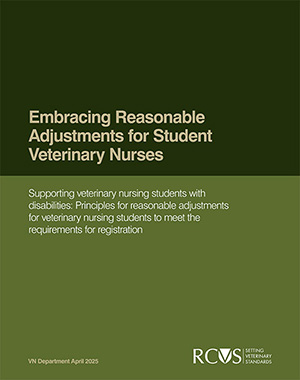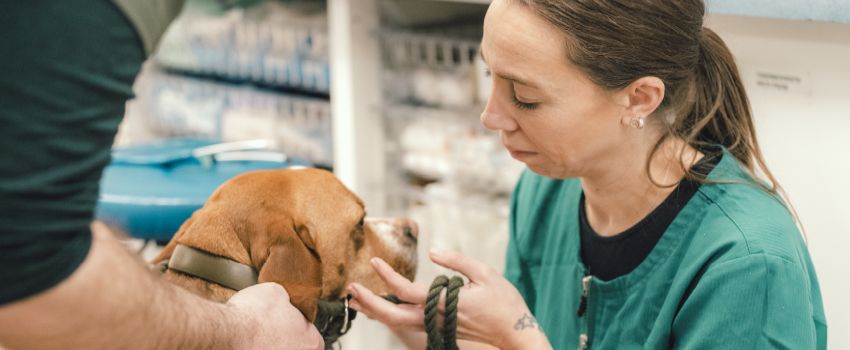-
-
- Advancement of the Professions Committee
- Standards Committee
- Audit and Risk Committee
- Education Committee
- Disciplinary Committee
- Charter Case Committee
- Preliminary Investigation Committee and Disciplinary Committee Liaison Committee
- Registration Committee
- Preliminary Investigation Committee
- Paper classification: some definitions
-
-
-
-
- About extra-mural studies (EMS)
- EMS requirements
- Information for vet students
- Information for EMS providers
- Information for vet schools
- Temporary EMS requirements
- Practice by students - regulations
- Health and safety on EMS placements
- EMS contacts and further guidance
- Extra-mural studies fit for the future
-
-
- Code of Professional Conduct for Veterinary Surgeons
- Code of Professional Conduct for Veterinary Nurses
- Contact the Advice Team
- XL Bully dog ban
- 'Under care' - guidance
- Advice on Schedule 3
- Controlled Drugs Guidance – A to Z
- Dealing with Difficult Situations webinar recordings
- FAQs – Common medicines pitfalls
- FAQs – Routine veterinary practice and clinical veterinary research
- FAQs – Advertising of practice names
- GDPR – RCVS information and Q&As
-
- Accrediting veterinary degrees
- Accrediting veterinary nursing qualifications
- Reasonable adjustments for student vets
- Health and disability in veterinary medicine study and practice
- The role of the veterinary schools and the RCVS
- Reasonable adjustments and the Equality Act 2010
- Reasonable adjustments and Day One Competences
- Examples of reasonable adjustments for vet students
- Annex
- Reasonable adjustments for student vets - summary
- Reasonable adjustments for student veterinary nurses
- Health and disability in veterinary nurse education and training
- Reasonable adjustments for students and the UK disability discrimination legislation
- Educational assessment of veterinary nurses
- Roles of key stakeholders in the application of reasonable adjustments
- Examples of reasonable adjustments for vet nurse students
- Embracing reasonable adjustments for student vet nurses - summary
- External review of the RCVS by ENQA
- Requirements for remote and online student assessments
Reasonable adjustments for student veterinary nurses
This guidance provides advice on supporting veterinary nursing students with disabilities. It explains the principles for making reasonable adjustments to assist veterinary nursing students in meeting the requirements for registration. The information is intended for veterinary nurse education and training providers, as well as their students and staff.
What the guidance covers
The guidance on these pages explains reasonable adjustments in veterinary nurse education, covering:
- Health and disability in veterinary nurse education and training
- Reasonable adjustments for students and the UK disability discrimination legislation
- Educational assessment of veterinary nurses
- Roles of key stakeholders in the application of reasonable adjustments
It also provides examples of reasonable adjustments for vet nurse students.
 Download the PDF version
Download the PDF version
The guidance on these pages is also available as a PDF.
Download 'Embracing reasonable adjustments for student veterinary nurses' [PDF].
On this page:
- The statutory responsibilities of the RCVS
- The responsibility of providers
- Student vet nurse summary
The statutory responsibilities of the RCVS
The Royal College of Veterinary Surgeons (RCVS) has a statutory responsibility under the Veterinary Surgeons Act (1966) for regulating the professional education of veterinary nurses and veterinary surgeons.
In order to safeguard the interests of the public and animals, the RCVS sets the standards for veterinary nurse education and training. Only individuals who have completed a recognised (accredited) qualification or have passed the RCVS VN Pre-registration Examination are eligible to apply to have their name entered onto the RCVS Register of Veterinary Nurses, allowing them to practise as veterinary nurses in the UK.
RCVS accreditation of veterinary nursing programmes provides assurance that standards are being met and drives the quality improvement of veterinary nursing education and training. We regulate all veterinary nursing programmes to the point of completion (certification). One aspect of this is to ensure that providers are meeting the needs of their students.
As the professional regulator, we exist to set, uphold and advance veterinary standards, in order to enhance society through improved animal health and welfare. We believe this can best be achieved when the veterinary professions are reflective of our diverse society and, consequently, it should be recognised that veterinary nurses with a disability are beneficial to the professions, bring important experience and insights, and are to be valued for their contribution to animal health and welfare.
The responsibility of providers
It is the responsibility of providers to put in place reasonable adjustments for students with disabilities. The RCVS has produced this guidance to support providers through the description of high-level principles to assist consistent decision making and clarify how reasonable adjustments fit in with competence standards. This guidance also provides examples of different types of reasonable adjustments that could be appropriate in different cases and offered to students.
This guidance is not and does not purport to be legal advice. Providers should take their own legal advice about any specific questions arising from reasonable adjustments, as every case will depend on its own particular circumstances.
This guidance is also aimed at students and those applying to become students, with the aim of clarifying how, and to what extent, support can be put in place for students with disabilities to meet the competence requirements for registration and a licence to practise in the UK as an associate Member of the RCVS.
This guidance should be considered in accordance with:
- Guidance on the Equality Act 2010
- Disability Discrimination Act for Northern Ireland 1995
- Special Education Needs and Disability (NI) order 2005
- The RCVS Standards Framework for Veterinary Nurse Education and Training
- The RCVS Day One Competences for Veterinary Nurses
- The RCVS Day One Skills for Veterinary Nurses – Small animal
- The RCVS Day One Skills for Veterinary Nurses - Equine
- The RCVS Professional Behaviours and Attributes for Veterinary Nurses
Student vet nurse summary
This section is also available in a condensed version for vet nurse students, offering a clear, accessible overview of key information on reasonable adjustments during your studies.
Embracing reasonable adjustments for student veterinary nurses - summary.
Next
Health and disability in veterinary nurse education and training
Please note: this general guidance does not purport to be legal advice and is not to be relied upon as legal advice. Students and education providers should take their own advice in the particular circumstances and as required.
